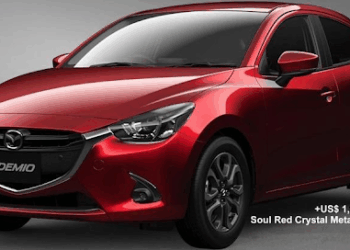Electric vehicles (EVs) are gaining traction across Kenya, and it’s easy to see why. With rising fuel costs, growing environmental awareness, and more affordable EV options entering the market, many Kenyans are now considering going electric. But before you make the switch, there are a few key things you need to know.
Whether you’re in Nairobi, Kisumu, or Nakuru, this guide will help you make a confident and informed decision when buying your first electric car in Kenya.
1. Charging Infrastructure: Where Will You Charge?
The first thing to consider before buying an EV is access to charging stations. Unlike fuel stations, public EV charging points are still limited in Kenya. While Nairobi and Mombasa have a growing number of charging hubs thanks to companies like EVChaja and Kenya Power, rural and less urbanized areas still lack reliable infrastructure.
What you can do:
- Install a home charging station if you have access to secure parking with electricity.
- Consider EVs with longer range (300+ km per charge) if you live outside major towns.
- Use mobile apps to locate the nearest public chargers.
For regular updates on Kenya’s EV infrastructure, check out https://automag.co.ke/ — a useful source of local automotive news and developments.
2. Range Anxiety: How Far Can You Really Go?
One of the biggest fears among new EV buyers is range anxiety — the fear that your car will run out of charge before reaching your destination. But with proper planning and the right model, this shouldn’t be a major issue.
Most EVs in Kenya offer:
- 150–400 km per full charge (depending on the model and driving habits)
- Regenerative braking that helps extend range during traffic or downhill driving
Tip: Understand your daily mileage and choose an EV that comfortably exceeds it. For city dwellers, even the compact Nissan Leaf or Toyota Aqua Hybrid may offer more than enough range.
To see real-time listings of available EVs in Kenya, including budget-friendly second-hand options, visit https://auto24.co.ke/ where you’ll find models like the Hyundai Ioniq, BMW i3, and MG ZS EV that suit different lifestyles.
3. Cost and Incentives: Is It Worth It?
While EVs are often more expensive upfront, they tend to save you money in the long run due to lower running and maintenance costs.
In Kenya:
- EVs are exempt from excise duty (25%) and enjoy reduced import taxes
- Electricity is generally cheaper than petrol or diesel per kilometer
- Less frequent servicing due to fewer moving parts
Pro Tip: When calculating your budget, factor in the installation of a home charger and any future battery servicing or replacement.
Explore more insights on ownership costs and long-term savings by reading expert tips on https://automag.co.ke/.
4. Maintenance and Repairs: Who Will Service It?
Electric vehicles require less maintenance than traditional cars since they don’t need oil changes, fuel filters, or exhaust system repairs. However, not all mechanics in Kenya are trained to handle high-voltage systems.
Best practices:
- Buy from dealerships or verified sellers that offer local servicing and warranties
- Join local EV owner groups to find trusted garages and technicians
- Keep your EV’s software up to date (especially for models with smart diagnostics)
5. Battery Life and Replacement: What to Expect
EV batteries are the most crucial and expensive component of your electric car. Fortunately, most batteries are built to last between 8–10 years or about 160,000 km, depending on usage and climate.
Kenya’s moderate climate is relatively battery-friendly, especially in regions that avoid extreme heat.
To extend your battery’s life:
- Avoid charging to 100% regularly
- Don’t let the battery drop below 20%
- Use slow charging (home charging) as often as possible
If you’re buying a used EV, always ask for a battery health report. Some vehicles listed on https://auto24.co.ke/ even include this in the car description, helping buyers make informed decisions.
Final Thoughts
Switching to an electric car in Kenya is a smart move—but only if you plan wisely. By understanding your driving needs, knowing where and how to charge, and picking the right model for your lifestyle, you’ll be well on your way to clean, efficient, and cost-effective driving.
Electric mobility in Kenya is growing fast, and with support from the government and private sector, the future is looking greener.




